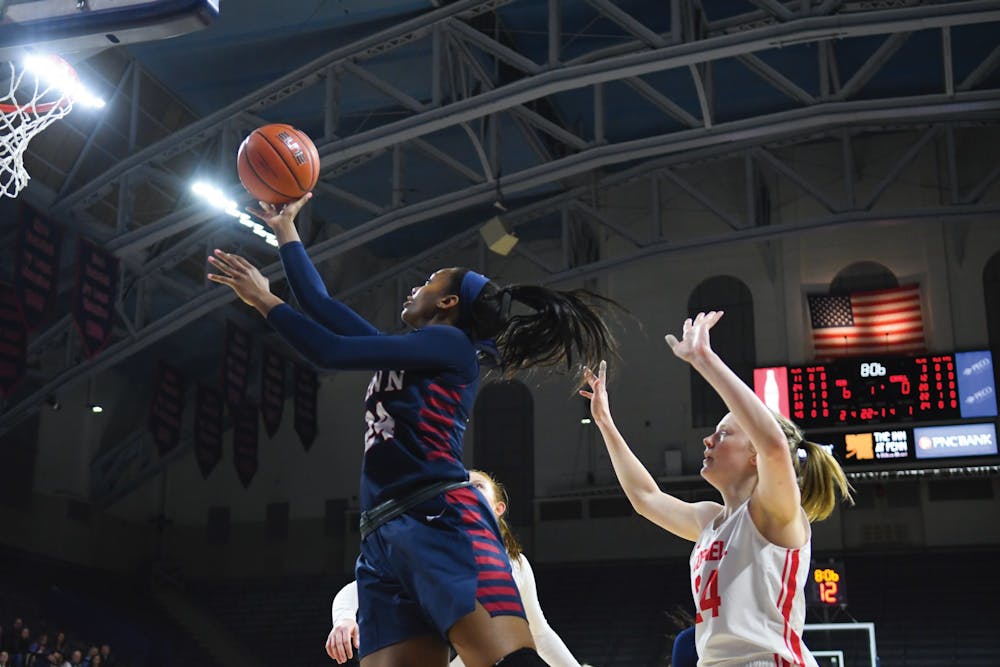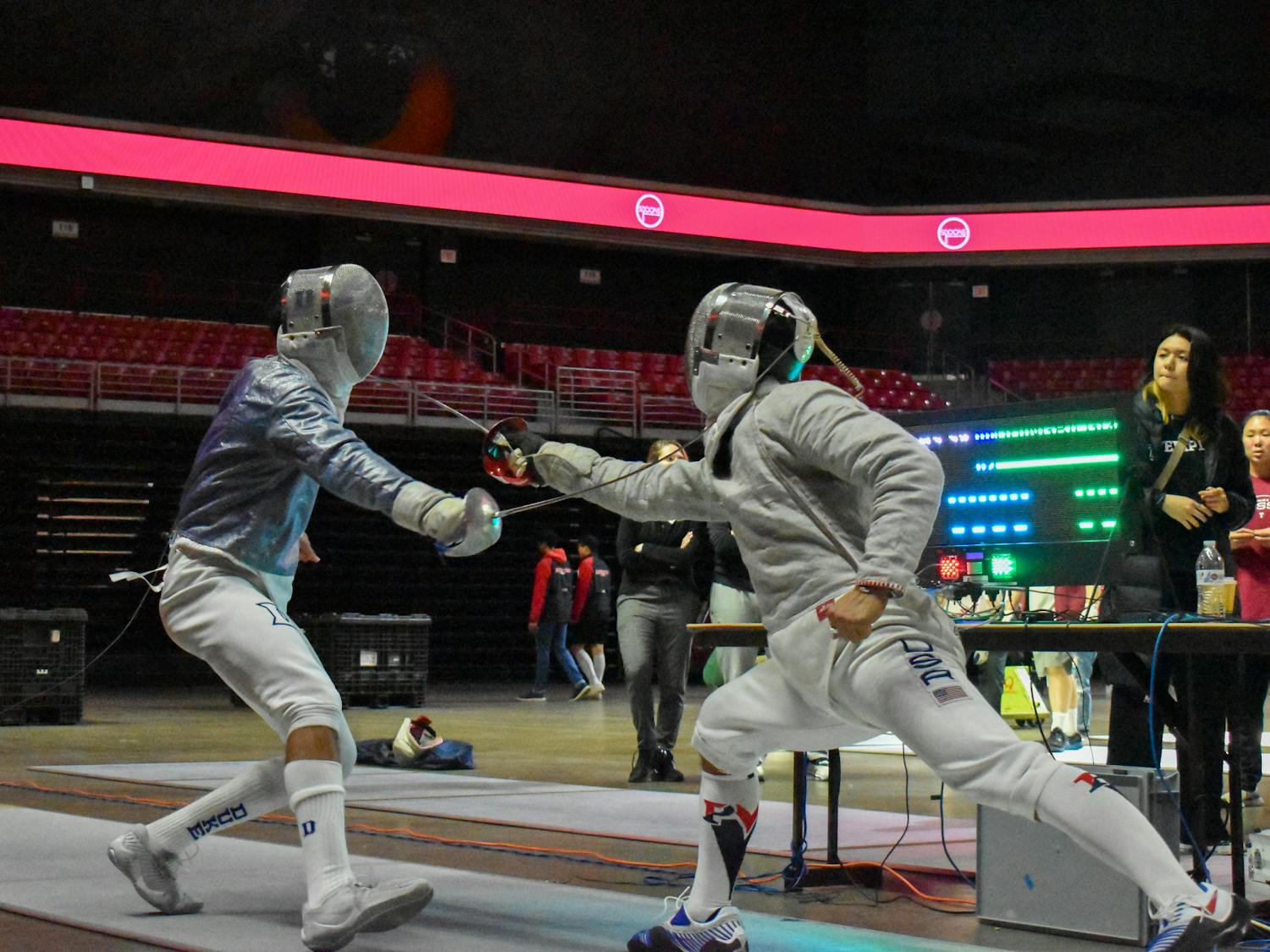Penn women’s basketball had a very successful week, emerging with a pair of wins to grab a winning Ivy record for the first time this season. Here are three takeaways from this weekend’s games at the Palestra.
The Palestra is Penn’s fortress
Returning to their home court for the first time in almost a month, the Quakers rounded out the week with a pair of wins.
The Lions almost snatched victory away from the Quakers’ hands on Friday by shooting lights out from three (12 of 25), but when it mattered the most, Penn got a lift from the home crowd and emerged victorious in overtime.
The team is now 7-1 at the Palestra, its only loss coming at the hands of Princeton, who is leading the Ivy League.
The Red and Blue still can improve on finding ways to win on the road, but if they can continue to make the Palestra a difficult place to play for opponents, a finish near the top of the Ivy League should still be safe in Penn’s hands.
Penn’s offense revolves around Parker
It has taken her a while, but junior center Eleah Parker seems to have gotten her offensive groove back.
RELATED:
Penn women's basketball dominates Cornell, 63-41, for Ivy Weekend sweep
Parker reaches 1,000 points as Penn women's basketball survives against Columbia
On Friday against Columbia, she erupted for 28 points and 13 rebounds en route to reaching the 1000-point milestone in her Penn career.
On Saturday against the Big Red, Parker had a less eye-catching but perhaps equally important stat line of 13 points and eight boards. Guarding her for most of the gane was fellow 2018-2019 first team All-Ivy selection Laura Bagwell-Katalinich, but Parker was able to come out on top.

Junior center Eleah Parker exploded with two monster games, and surpassed the 1000-point mark for her Penn career.
Most of Parker’s offense hinges on her moves in the post and her ability to crash the glass. This weekend, against the undersized interior defense of both Columbia and Cornell, she grabbed four offensive rebounds in each game. Those led to simple second-chance opportunities, which she was able to take full advantage of.
As a team, the Quakers’ offense flows much better when Parker is on song. Recently, teams like the Lions and the Big Red have tried to double her when she gets the ball in the paint, opening up outside shots for sharpshooters like freshman guard Kayla Padilla and senior guard Phoebe Sterba, who torched Cornell with six three-pointers.
After scoring in the double digits just five times in the team’s first 12 games, Parker has now done so in five of the last six games. If that continues, she will demand even more attention from opposing defenses, opening up easier routes to the basket for her teammates.
Crawford’s rapid emergence and Penn's bench
With his team riding a three-game losing streak, coach Mike McLaughlin inserted junior forward Tori Crawford into the starting lineup at Harvard. Since then, she has racked up a few impressive performances for the Red and Blue.
Standing at 6-foot-2, Crawford is a mismatch for most Ivy League players in the paint. Playing 38 minutes in the overtime thriller against Columbia, the forward scored 13 points, including some clutch one-on-one baskets in the fourth quarter that gave the Quakers some breathing room as the Lions looked to gather momentum.
Clutch buckets were not needed in the game against the Big Red, but Crawford still stuffed the stat sheet with 10 points, nine boards, and four assists.
With Crawford in the starting lineup, however, the Quakers will need to find another offense playmaker from the bench.
Sophomore forward Kennedy Suttle, whom Crawford replaced, is a tenacious defender but does not have the same offensive prowess, averaging just 3.8 points per game. Guards Michae Jones and Katie Kinum both play with tremendous energy, but neither has been quite able to match what Crawford offers on the offensive end.
In fact, having a game-changing player off the bench could just be the difference between a loss and a win in tight Ivy League games.
Against Columbia, the Quakers’ bench totaled just nine points, eight of which came from Jones. They were outscored by Columbia’s bench player Kaitlyn Davis, who had 10 points herself. If Penn had been able to call on its bench to ignite the offense, it could have offered the starters more rest, and the Quakers might have been able to put the game away earlier.
Starting Crawford has certainly looked like a good decision, and she has repaid her coach’s faith in her with strong performances on the court. However, McLaughlin now has to decide who is ready to step up as the team’s new x-factor off the bench.









